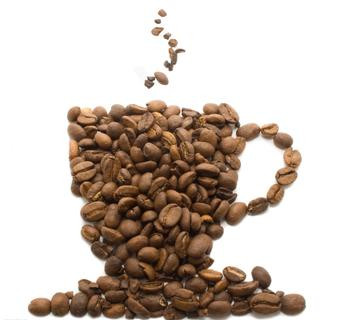Indian Fine Coffee "National Policy" to promote Local Coffee
CafeCoffee Day, India's largest coffee chain, will go public this year with a market capitalization of about $1 billion. CafeCoffee Day is a successful Indian coffee chain with 1650 stores in India, more than three times the number of stores owned by its competitors. The launch of CCD reflects the fact that coffee has gradually gained a place in India, a "tea country".

Black tea has been popular in India for 200 years.
India is a country with a strong religious atmosphere, almost all people believe in religion, and religion regulates the food, clothing, shelter and transportation of Indians. Because Hinduism and Islam, which are popular in India, do not advocate drinking alcohol, they advocate drinking tea instead, so in the past 200 years, tea has been the most common drink in Indian life. India is the largest tea grower in the world, with an annual output of more than 800000 tons of tea, almost all black tea, best known for Darjeeling and Assam brands. India is also one of the countries with the largest consumption of tea, with 70% of its black tea consumed domestically, with an annual per capita consumption of 750 grams. The ubiquitous roadside tea stalls have always been a major feature of India's urban and rural areas.
But few people know that India is also one of the largest coffee-producing countries in the world. Karnataka, Kerala and Tamil Nadu in the south are traditional coffee-growing states. Indians do not drink much coffee themselves, so the coffee produced has always been exported in large quantities. "A lot of farmers don't even know they grow coffee, they just feel like other cash crops exported to the West," Ross, 34, the founder of coffee sales website TheIndianBean.com, told the Los Angeles Times.
Before India implemented the economic liberalization reform in 1991, Indian farmers who grew coffee sold coffee to the country, and the government exported coffee and other agricultural products to the former Soviet Union in exchange for imported goods such as weapons and equipment. Nowadays, a large number of Indian coffee is also exported to western countries, where Indian coffee, as a primary agricultural product, will be made into branded coffee, and its market retail price will be much higher than that at the time of export.
Promoting domestic Coffee as a "National Policy"
According to the Coffee Council of India, the average Indian consumes only 0.25 pounds of coffee a year, compared with more than 9 pounds in the United States. But it is worth noting that per capita coffee consumption in India has almost tripled in the past decade.
Indians have long regarded coffee as an expensive import and stayed away from it. But now, with the acceleration of India's economy and the acceleration of domestic urbanization, the emerging urban middle class has sprung up, and Indians are drinking coffee. Compared with the consumption of black tea with strong civilian color, coffee is more commercial. In the increasingly open Indian society, "drinking coffee", as a typical embodiment of western consumer culture, is regarded as a fashionable and classy behavior, which satisfies young people's curiosity and pursuit of western popular culture.
Starbucks officially entered the Indian market by opening its first Indian store in Mumbai in October 2012. The store, which can hold 120 people, sells coffee at a high price in Indian coffee shops, retailing for a little more than $2 a 12-ounce cappuccino. An Indian coffee company executive told the Daily Telegraph that at present, "CafeCoffee Day, Seattle Gourmet Coffee and other famous brand coffee shops have spread all over every city in India, which shows the love of coffee in India."
"I used to drink tea every day, but after the coffee retail store opened, I went there for coffee," said Vincent Duat, a 29-year-old from Mumbai.
The "coffee culture" entered India and quickly gained a foothold, and its prospects are also quite optimistic. The establishment of a domestic consumer market for Indian coffee is the latest development in the Indian government's economic development plan. According to a report released by retail consultancy Technopak Advisors, the value of the Indian coffee market will expand from $230 million today to $410 million by 2017, and the number of coffee shops will increase from 1950 today to 2900. John Calver, president of Starbucks China and Asia Pacific, said: "given the size of India's economy, the development of cafe culture and the growing spending power, India will be a very big market in the long run."
Important Notice :
前街咖啡 FrontStreet Coffee has moved to new addredd:
FrontStreet Coffee Address: 315,Donghua East Road,GuangZhou
Tel:020 38364473
- Prev

The important role of Coffee tasters in Coffee Industry
Do you know what the job of a coffee tasting expert is? They are the bridge between the upstream and downstream of the coffee industry: on the one hand, they judge the quality of raw coffee beans to coffee consumers and recommend the most suitable boutique coffee to the majority of coffee buyers; on the other hand, they also describe the flavor needs of end consumers to coffee producers and participate in or guide some important things in the upper reaches of the coffee industry.
- Next

Coffee maker recommends Wi-Fi coffee machine to be integrated into life
Internet-connected coffee machines are nothing new, but in practice, we still need a fully functional and easy-to-use app to match. Today, Smarter has released a coffee machine that supports Wi-Fi and can be operated through app. With it, users will be able to make a simple cup of coffee on a mobile device, while the machine is built in
Related
- Unexpected! Ruixing Telunsu lattes use a smoothie machine to foam milk?!
- % Arabia's first store in Henan opens into the village?! Netizen: Thought it was P's
- Does an authentic standard mocha coffee recipe use chocolate sauce or powder? Mocha Latte/Dirty Coffee/Salty Mocha Coffee Recipe Share!
- What is the difference between Vietnam egg coffee and Norway egg coffee? Hand-brewed single product coffee filter paper filter cloth filter flat solution!
- What is the difference between sun-cured and honey-treated coffee? What are the differences in the flavor characteristics of sun-honey coffee?
- How to make Italian latte! How much milk does a standard latte use/what should the ratio of coffee to milk be?
- How to make butter American/butter latte/butter Dirty coffee? Is hand-brewed coffee good with butter?
- Is Dirty the cold version of Australian White? What is the difference between dirty coffee/decent coffee and Australian white espresso?
- Relationship between brewing time and coffee extraction parameters How to make the brewing time fall to 2 minutes?
- Got entangled?! Lucky opens a new store, Mixue Ice City, and pursues it as a neighbor!

